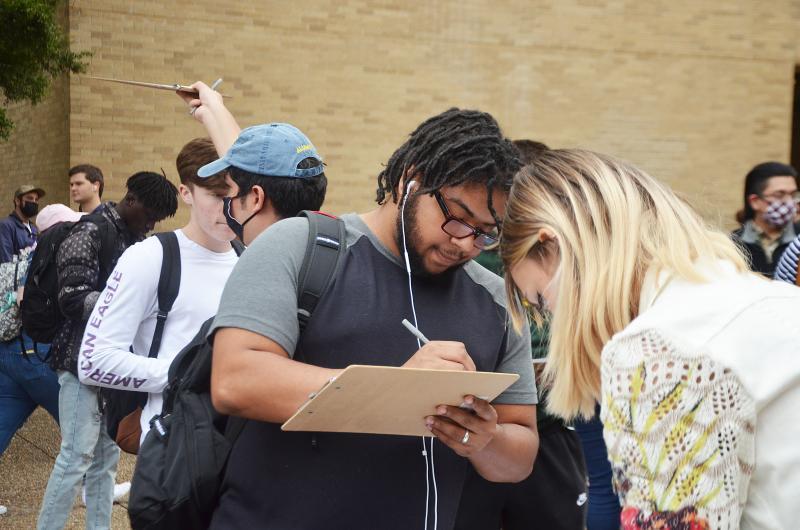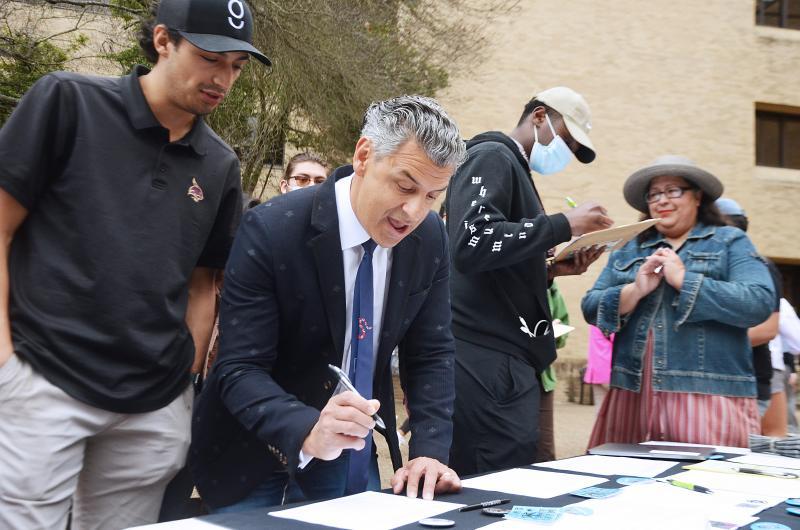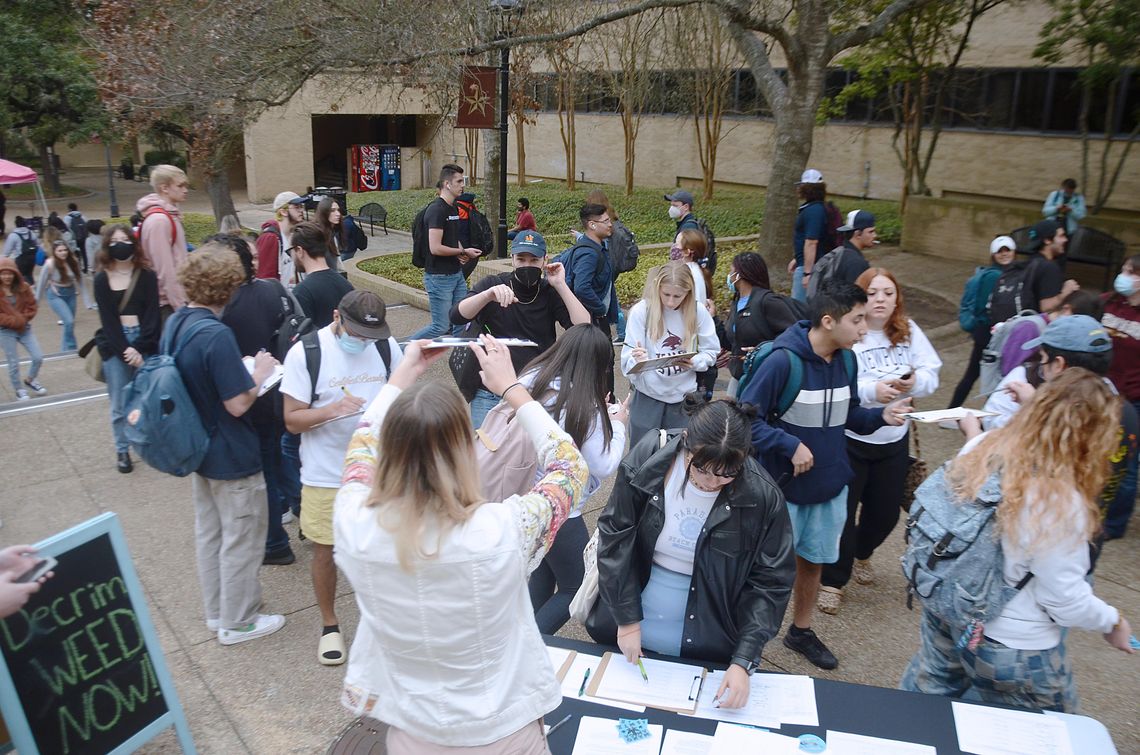San Marcans could see a measure on the November ballot aiming to change marijuana enforcement in the city.
Mano Amiga, a grassroots immigration and legal reform organization, has begun gathering signatures to place an initiative on the ballot that would establish an ordinance eliminating low-level marijuana enforcement in San Marcos.
“Having a charge for possession of marijuana on your record has the potential to negatively impact a person's life in so many ways,” Mano Amiga Communications Director Sam Benavides said. “It can be found by employers, landlords, social services, and for students, it can even impact your financial aid. Our neighbors and our peers should not have their lives so needlessly disrupted over something that over half the states in our country have already decriminalized.”
According to the ordinance language, citations and arrests for misdemeanor possession of marijuana would end if the voters approved the proposition. San Marcos police, however, could cite an individual or make an arrest for Class A or Class B misdemeanor possession of marijuana if it’s a part of an investigation involving a felony-level narcotics case or the investigation of a violent felony.
Additionally, if the ordinance is passed, citations for possession of drug residue or drug paraphernalia should not be issued, a prohibition against city funds or personnel to conduct THC concentration testing would be established, and there would also be a prohibition against city police using the odor of marijuana or hemp as a probable cause for search or seizure.
In order to get the measure placed on the ballot, Mano Amiga and supporters need to gather signatures from 10% of the voting population — approximately 4,400 registered voters to sign a petition. Benavides said over 1,500 signatures have been gathered with more than 400 coming from Texas State University during its first day of in-person learning on Monday.

Efforts to gather signatures continued Tuesday with a press conference at Texas State. With a crowd gathered around the Fighting Stallions statue on the quad, Mike Siegel, Political Director of Ground Game Texas — an organization that aims to “organize and mobilize voters community-by community,” said marijuana reform is extremely popular in Texas.
“Eighty-seven percent of Texans support some form of decriminalization,” Siegel said. “This is something that’s popular among Democrats and Republicans. And for some reason there’s a political bloc that prevents us from keeping people out of jail, letting people move on with their lives even if they decide to smoke some marijuana. So this is us taking common sense action at the local level.”
“There’s no reason a marijuana ticket or arrest should lead to someone losing their job, losing a home, losing any sort of opportunity even being incarcerated if a warrant is issued,” Siegel added. “There’s no reason that should happen and this reform will keep people out of the criminal justice system, and will save scarce public dollars for real public issues.”

Above, Hays County Judge Ruben Becerra signs a petition aiming to change marijuana enforcement in the City of San Marcos, following a press conference held at Texas State University on Tuesday. Daily Record photo by Nick Castillo
According to the Hays County Jail Dashboard, 233 arrests were made between Oct. 29, 2020 and Oct. 20, 2021 for possession of marijuana.
Texas law makes recreational use of cannabis illegal in the state. Hays County District Attorney Wes Mau said he understands efforts in San Marcos have been described as decriminalization because the city doesn't have the authority to amend state law. He said that even for the state legislature, which is the only body that can decide to make marijuana possession legal, it’s more complicated than saying, “it’s legal now.”
“I would recommend to those interested the Colorado Division of Criminal Justice’s Office of Research and Statistics’ ‘Impacts on Marijuana Legalization in Colorado’ report, which presents data on marijuana-related topics including crime, impaired driving, hospitalizations, ER visits, usage rates, effects on youth, and more,” Mau said in an email. “Any ‘reform efforts’ that overlook these issues would be shortsighted.”
Signatures to have marijuana reform placed on the November ballot are needed by May, Benavides said. She highlighted Mano Amiga’s efforts to pass the city’s Cite and Release ordinance — which aims to reduce the amount of arrests made for qualifying low-level, nonviolent offenses such as possession of small quantities of marijuana — as the organization’s efforts to decriminalize marijuana continues.
“Together, as a community, we have the power to make sure that no one in our community has to face criminal charges for possession of marijuana,” Benavides said. “But it’s going to have to take every single one of us here to make it happen. I want everyone here to experience the same sense of pride that I felt when we got the state’s first Cite and Release ordinance passed.”









